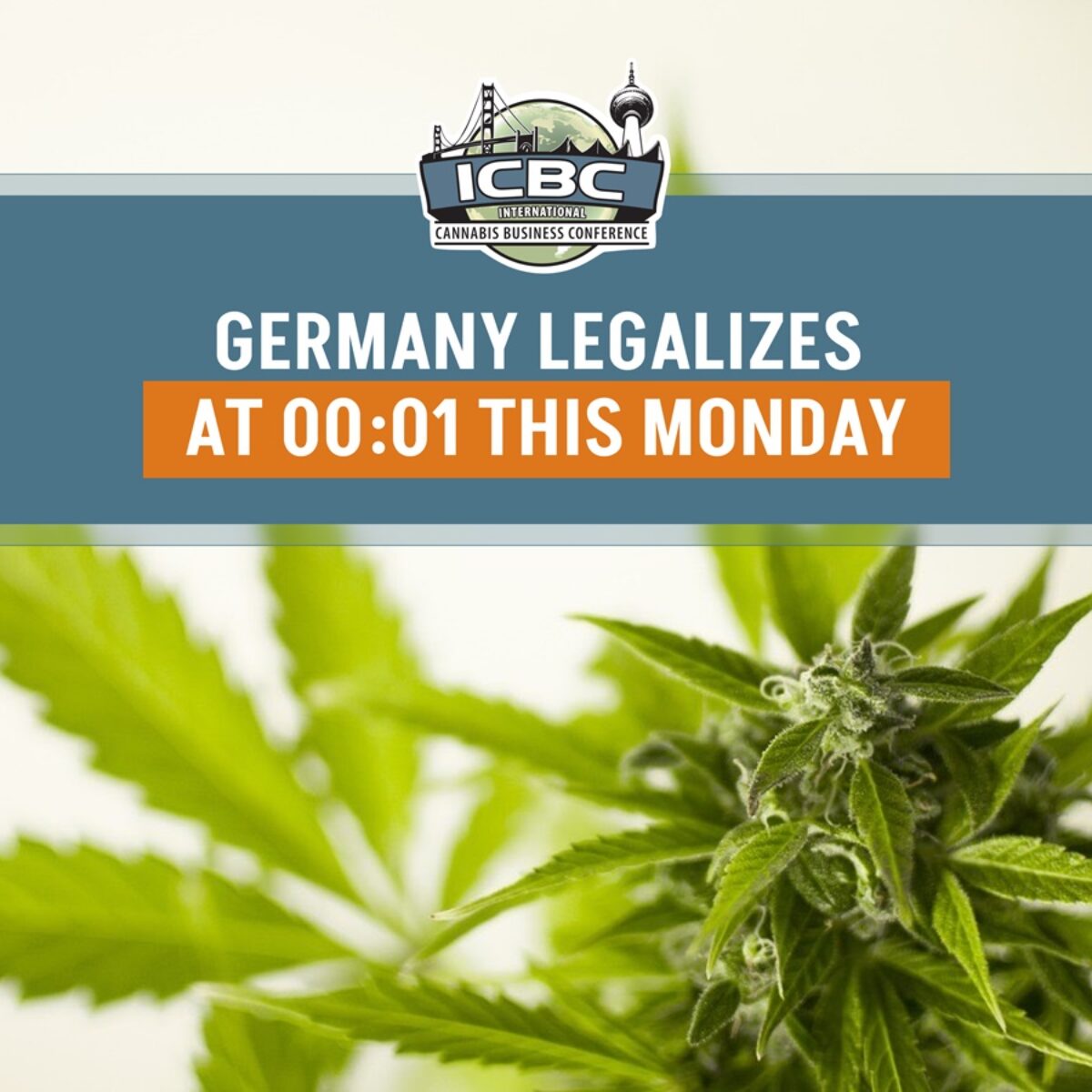Germany's Cannabis Legalization: Everything You Need to Know
Embarking on a historic journey, Germany opens a new chapter in its national policy with the groundbreaking legalization of cannabis. This transformative moment not only reshapes the landscape of drug reform within the country but also sets a significant precedent on a global scale.
Our comprehensive guide delves into the nuances of the CanG law, exploring its impact on personal cultivation, medical cannabis accessibility, and the advent of noncommercial cannabis clubs.
Join us as we navigate through this pivotal shift towards a more progressive and inclusive approach to cannabis in Germany.
A New Dawn for Cannabis in Germany
Germany's journey towards cannabis legalization reached a historic milestone on April 1, 2024. The enactment of the CanG law signifies a groundbreaking shift from the century-old prohibition to a more open, regulated cannabis market. This pivotal moment not only This part of the article demystifies the legal boundaries of possession and discusses the implications of exceeding these limits under the new law.
Navigating the New Norms
Understanding Possession Limits: The importance of staying within the legal amount.
Penalty Adjustments: Transitioning from criminal charges to administrative penalties for minor overages.
Cannabis Clubs: A Community Approach
Set to start on July 1, 2024, noncommercial cannabis clubs introduce a novel model for legal cannabis consumption and sourcing in Germany. This section delves into how these clubs will operate within the legal framework and their anticipated role in the community.
Clubs in the Cannabis Ecosystem
Club Dynamics: Insights into how these membership-based clubs will function.
Regulation Insights: A look at the rules shaping the operation of cannabis clubs.
The Road Ahead: Shaping Germany's Cannabis Future
Reflecting on the initial steps of legalization, this section looks forward to the evolution of cannabis policy in Germany, including the potential for regional commerce initiatives and the ongoing push for a fully inclusive and equitable cannabis framework.
Future Directions and Continuous Advocacy
Expanding Commerce:The promise of regional pilot programs in shaping the future cannabis market.
transforms the cannabis landscape in Germany but also sends ripples across the global conversation on drug policy reform.
Highlights of the CanG Law
A Historic Shift: Germany's move towards cannabis legalization marks a significant moment in drug reform.
The CanG Framework: An overview of the new legal guidelines shaping cannabis use in Germany.
De-listing Cannabis: A Leap Towards Progress
The removal of cannabis from Germany's Narcotics List opens a new chapter in medical cannabis accessibility and research. This significant policy change paves the way for a more streamlined approach to medical cannabis, enhancing patient care and opening doors to extensive research opportunities.
Improving Access and Research
Easier Access: Simplifying the journey for medical cannabis patients and pharmacies.
Boosting Research: Facilitating cannabis studies with potential for national and EU funding.
Personal Cultivation: Cultivating Change
Under the new law, Germans can now cultivate up to three cannabis plants at home. This section explores the cultural shift towards home cultivation and its impact on consumer preferences and the burgeoning market for cultivation supplies.
Home Cultivation's Ripple Effect
A Popular Choice: The trend towards home-grown cannabis among adults in Germany.
Market Expansion: Opportunities for businesses in the cultivation supply chain, from seeds to sophisticated growing equipment.
Personal Possession: Knowing Your Limits
With the legalization, adults in Germany are allowed to possess up to 25 grams of cannabis. The Path to Full Legalization: The ongoing commitment needed from all stakeholders to ensure a just and stigma-free cannabis culture.
In concrete terms, this means that from April 1, people over 18 in Germany will be allowed to own and carry 25 grams of cannabis for consumption. What's more, hashish enthusiasts can now grow three cannabis plants in their own homes and store up to 50 grams of dried cannabis.
Consumers, as well as many politicians and health experts, have long been calling for the use of cannabis to be permitted in small quantities, partly to stop the police from spending time and resources on small dealers. In the 2021 coalition agreement, the three governing parties agreed on this in principle and wrote in their coalition agreement: "We are introducing the controlled supply of cannabis to adults for recreational purposes in licensed stores."
But there is no longer any mention of such licensed stores in the law proposed by Federal Health Minister Karl Lauterbach (SPD) — at least not yet.
- Initially, the government wants to allow and regulate private consumption, partly in order to relieve the burden on the police and judiciary.
- From July 1, private clubs with up to 500 members will also be allowed to grow cannabis plants collectively and distribute it to their members.
Legalization elsewhere in the EU
Germany is not the first European country to relax cannabis regulation. The use of small quantities of cannabis has long been decriminalized in Portugal, Spain, Switzerland, the Czech Republic, Belgium, and the Netherlands, though there too, certain rules remain in place: Possession is not legal in the Netherlands, for example; its use is only permitted in the famous coffee shops, and anyone wishing to enter them must be able to prove they are of legal age.
The debate about the possibility of legalization has always been characterized by two positions: Some doctors and health experts warn against trivializing cannabis. Neurologist Euphrosyne Gouzoulis-Mayfrank, incoming president of the German Society for Psychiatry, Psychotherapy and Psychosomatics (DGPPN), has said: "Age is the crucial point in this discussion. I fear that with this law we are casting out the devil and replacing him with Beelzebub."
Young people's brains continue to develop until the age of 25, and cannabis can cause serious damage, particularly of a psychological nature.
- Other critics warn that the relatively harmless cannabis can be a gateway to harder substances. But supporters such as Janosch Dahmen, a Green Party Bundestag member and himself a doctor, disagree.
- "Rising cannabis consumption figures show that the prohibition policy of recent years has not led to fewer people consuming cannabis — on the contrary, consumption by young people in particular continues to increase," he told DW.
"The aim of the Cannabis Act is therefore to make cannabis use and access safer for informed adults by preventing the distribution of contaminated cannabis substances and curbing the black market," he added.
Cannabis consumption has indeed increased recently, especially among young adults between the ages of 18 and 25. According to the latest figures from the Federal Center for Health Education, half of young people had already used cannabis in 2021. The last time the figure was this high was over 50 years ago.
The government also wants to introduce an amnesty for previously punishable cases, which will be permitted in future. This prompted the managing director of the German Association of Judges, Sven Rebehn, to speak out, telling the RND news network: "The judiciary is expecting up to 100,000 files to be reviewed nationwide." Hardly manageable, says Rebehn. The issue of cannabis therefore remains a hot topic in Germany, even after the first step towards free consumption.
This article was originally written in German.
___________________________________________________________________________________






No comments:
Post a Comment